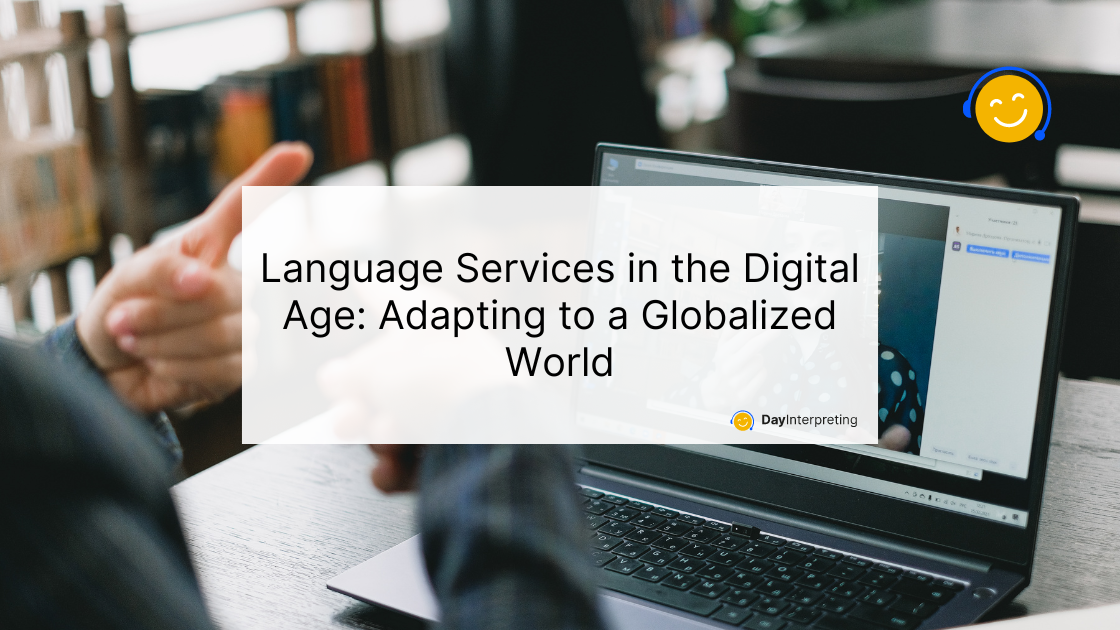Imagine a world where people from different countries can easily talk to each other, share ideas, and work together. Thanks to the internet and technology, this is happening right now! We live in a globalized world, where businesses, schools, and even friends are connected across continents. But there’s a challenge: we all speak different languages. This is where language services in the digital age come in to help.
What Are Language Services?
Language services include translation, interpretation, localization, and more. Translation is changing text from one language to another. Interpretation is when someone helps people talk to each other by speaking their words in a different language. Localization is about making content suitable for a specific culture or region. All these services help break down language barriers so people can communicate better.
The Role of Technology
Technology has made language services faster, better, and more accessible. Here are some ways technology is changing language services:
Machine Translation
You might have used Google Translate or another translation app. This is called machine translation. It uses computers to quickly translate text. While it’s not always perfect, it’s getting better every day and is great for simple translations.
Translation Management Systems
These are special software programs that help manage large translation projects. They help translators work faster and keep everything organized. They can even remember common phrases so the translator doesn’t have to translate the same thing over and over again.
Remote Interpretation
Remember how interpretation helps people talk to each other? Now, interpreters can do this over the phone or through video calls. This is called remote interpretation. It’s very helpful for businesses and people who need to talk to someone far away.
Localization: More Than Just Translation
Localization is like translation, but it goes further. It’s about making sure the content feels right for the local audience. For example, a website in the UK might use “favourite” while in the US it’s “favorite.” Localization also considers cultural differences, such as colors, images, and even jokes. This helps companies connect better with their audience.
The Importance of Language Services in the Digital Age
Reaching More Customers
When companies use language services, they can reach more people around the world. Imagine a company that sells shoes. If their website is only in English, they miss out on customers who speak Spanish, Chinese, or any other language. By translating their website, they can sell shoes to people in many countries.
Building Trust
People are more likely to trust a company that speaks their language. It shows that the company cares about them and understands their needs. This is why localization is so important. It makes the company’s message feel more personal and trustworthy.
Language Services in Education
Schools and universities are also using language services to help students learn better. Here’s how:
Online Learning
Many students take online classes from schools in different countries. Language services help translate the lessons and materials so everyone can understand them. This makes education more accessible to people around the world.
Study Abroad Programs
Students who study in other countries often need help with the local language. Interpretation services can help them communicate with teachers and classmates. This makes their experience smoother and more enjoyable.
Challenges and Solutions
Even with all these advancements, there are still challenges. Machine translations can sometimes make mistakes, and cultural differences can be hard to understand. Here are some solutions:
Human Touch
Even the best technology can’t replace humans. Professional translators and interpreters are still very important. They understand the nuances of language and culture that machines can miss. Using both technology and human experts gives the best results.
Continuous Learning
Language services are always improving. Companies and professionals need to keep learning about new technologies and cultural trends. This helps them provide better services and stay ahead of the competition.
The Future of Language Services in the Digital Age
The future looks bright for language services in the digital age. As technology continues to improve, we can expect even better translations, faster services, and more accurate interpretations. Virtual reality and artificial intelligence might also play a big role, making it even easier for people to communicate across languages.
Language services are crucial in our globalized world. They help businesses reach more customers, make education accessible, and allow people from different cultures to connect. By combining technology with human expertise, we can overcome language barriers and bring the world closer together. So, let’s embrace these services and enjoy the benefits of living in a connected, global community!





0 Comments